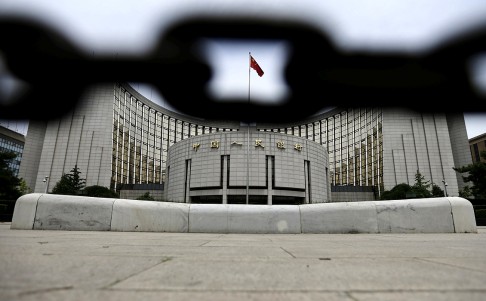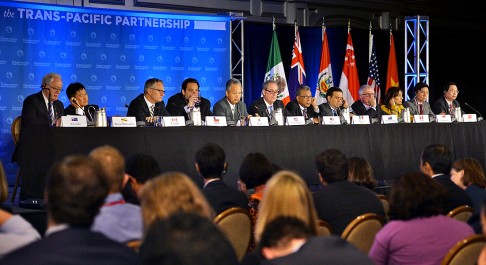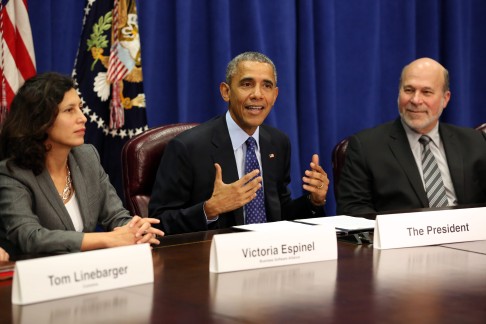- Joined
- Sep 29, 2013
- Messages
- 88
- Points
- 0
The biggest losers: Beijing and Hong Kong economy to suffer from Washington-led free-trade deal
TPP agreement could shave 2.2 per cent from the mainland's gross domestic product and threaten its position as the world's factory
PUBLISHED : Friday, 09 October, 2015, 11:51pm
UPDATED : Saturday, 10 October, 2015, 7:16pm
Denise Tsang
[email protected]

Chinese Commerce Minister Gao Hucheng.
Beijing and Hong Kong are grappling with the impact of a Washington-led free-trade agreement that could deal a blow to their respective economies and shave 2.2 per cent off the mainland's GDP, according to a Chinese economist.
People's Bank of China research bureau chief economist Ma Jun made the forecast in joint research published by the official Shanghai Securities News yesterday, a day after Commerce Minister Gao Hucheng said Beijing would "evaluate comprehensively" the impact of the Trans-Pacific Partnership (TPP) that excludes Beijing.

The Washington-led trade deal could shave 2.2 per cent off the mainland's GDP, according to a Chinese economist. Photo: Reuters
The mainland and Hong Kong emerged as two of the biggest losers of the deal, which covers about 40 per cent of the global economy and includes their top trade partners including the US, Japan, Vietnam and Australia.
Some economists said the deal, pending further discussion and approvals in the 12 member countries, threatens China's position as "the world's factory".
"All regional free-trade arrangements can cause some impact on the flow of trade and investment on non-members," Gao said.

After years of talks, the United States, Japan and the 10 other Pacfic Rim countries reached a broad agreement on the Trans-Pacific Partnership initiative, which covers around 40 percent of the global economy and excludes China. Photo: Kyodo
Dubbed "ABC" (Anyone but China), the trade deal is regarded as a US strategy to counter China's rising power in the region and has triggered fears that it will aggravate the downturn of China's exports and economy.
Ma's estimate of China's forgone gross domestic product is larger than some economists' forecast of a drop of 0.14-0.5 per cent. China expected its economy to grow by approximately 7 per cent this year compared to 7.4 per cent last year, the slowest since 1990.

US President Barack Obama meets agriculture and business leaders to discuss the benefits of the Trans-Pacific Partnership for American business and workers. Photo: EPA
TPP is seen as a higher-level free-trade agreement covering almost anything from investments, environment, labour and intellectual property to state-owned enterprises.
Mizuho economist Shen Jianguang said the mainland should counterbalance the TPP through the existing One Belt, One Road trade strategy and free-trade agreements, and press ahead with fiscal reforms to embrace global challenges.
A spokeswoman of Hong Kong's Trade and Industry Department said Hong Kong welcomed and supported regional initiatives in free trade.
"The TPP, in which many of our major trading partners are participating, is on our close watch," she said in a written reply to the Post. "We will study the TPP text when it is available."
Federation of Hong Kong Industries honorary chairman Stanley Lau Chin-ho said the deal might speed up the migration of Hong Kong factories from the mainland to TPP member countries such as Vietnam and Brunei.
"The trade deal is unfavourable to Hong Kong," he said. "But it's not the end of the world." Lau said the central government should improve the mainland's operating environment to lift its competiveness, which has been eroded by rising wages, more demanding labour rules and industrial reform.
Additional reporting by Wendy Wu



